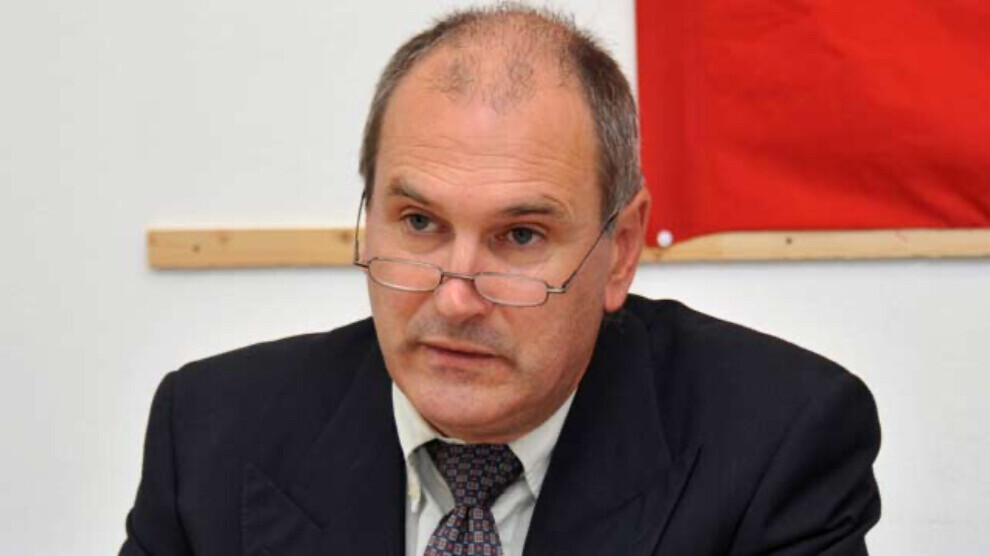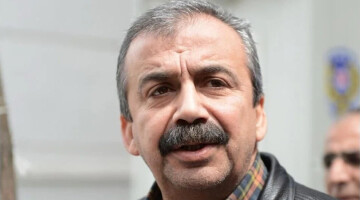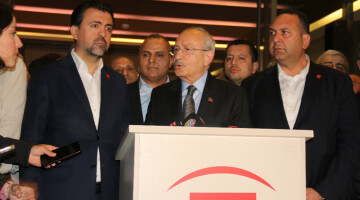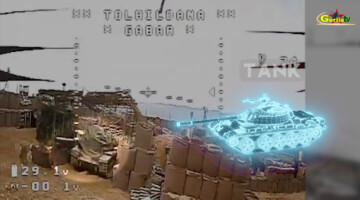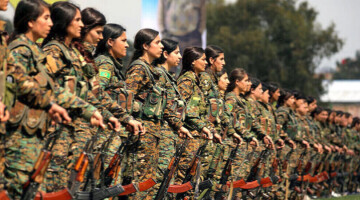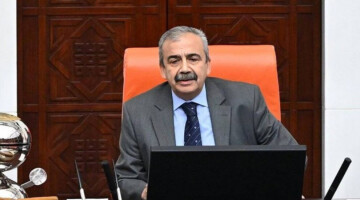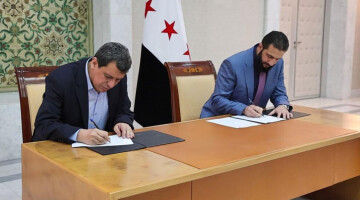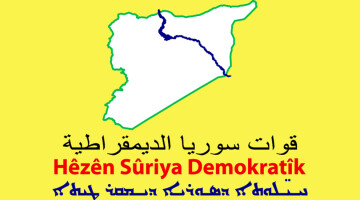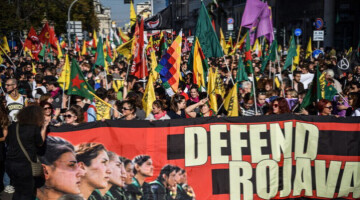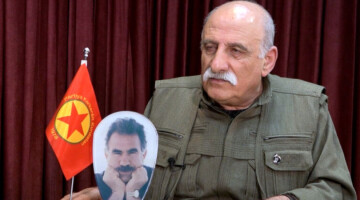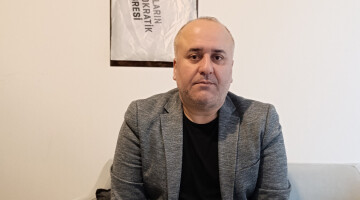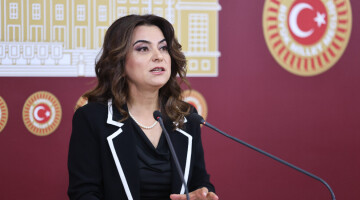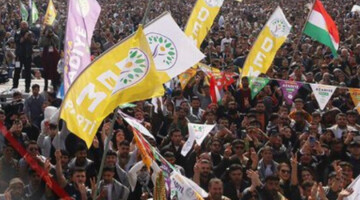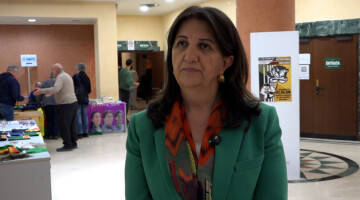On 27 February, Abdullah Öcalan issued a statement titled ‘Peace and Democratic Society’, offering a new perspective on the Kurdish question in Turkey and taking a historic step toward a renewed peace process. The call stood in clear opposition to the narrow approach that the state has followed for decades—reducing the Kurdish issue to a matter of terrorism—and highlighted its far deeper and more complex nature. In his statement, Öcalan emphasized that the Kurdish question is not merely a security issue, but a historical, cultural, and social one. He stressed that such a deeply rooted problem cannot be resolved through military means alone, and must instead be addressed through democratic and political solutions.
Öcalan’s call received significant attention not only in Turkey and Kurdistan, but also internationally. In various statements, the call was welcomed, with many emphasizing that for the process to succeed, the Turkish state must take concrete steps. However, despite this call, Turkey has yet to take any tangible action. The state’s inaction has raised concerns about the future of the process and is hindering efforts toward a solution. This ongoing uncertainty is leading many to question the sincerity of Turkey’s commitment to resolving the issue.
We spoke with former Italian Minister of Social Solidarity Paolo Ferrero about Abdullah Öcalan’s historic call and the developments that followed.
Abdullah Öcalan, who has been imprisoned in Imrali Prison for 26 years, issued a historic call on February 27 for a democratic resolution to the Kurdish question. As a supporter of the global campaign 'Freedom for Öcalan, Political Solution to the Kurdish Question', how do you evaluate this call?
In my view, Öcalan’s call is a positive one because it brings a very serious issue to the table. Can there be a political solution to the issue of the Kurdish people and their right to self-determination—or not? That is the fundamental question his call is trying to answer. Another question it raises is whether the military path is really the best method for reaching a political solution to this issue.
It seems to me that Öcalan is saying ‘no’—that the military path is no longer the best option. It is indisputable that, for many years, armed struggle was necessary, and had that struggle not been waged, we would not be in a position to ask these questions today. That is why I see this as a political proposal. It is not a matter of denying that mistakes were made in the past, but rather about recognizing that, given the current balance of power, it is now necessary to move to a different level. That level is the political process, and the current situation in Turkey—as well as its relations with neighboring countries—could make progress in this process possible.
That is why I view Öcalan’s call as a positive one. It is very important to discuss it and consider how it could be implemented, because this is not an easy path. We need to seriously examine whether this path is truly possible, and how we can move forward in the direction Öcalan is pointing toward.
Although some time has passed since Kurdish leader Abdullah Öcalan’s call, the Turkish state has yet to take any concrete steps. In fact, the isolation in Imrali Prison continues. In these conditions, how realistic is the call for the Kurdistan Workers’ Party (PKK) to lay down its arms?
I can’t say much about this, because I believe it’s a matter that needs to be discussed within the Kurdish movement itself, within the PKK. The line between a correct position and an incorrect one, between a constructive tactic and a damaging one, is very thin, and it’s truly difficult to say anything definitive.
From here, from Italy, I can’t say, “You should do this or that.” That’s not my role, and it wouldn’t make sense. That’s why I believe it’s up to comrades who are directly on the ground and experiencing this situation firsthand to define the right perspective and act accordingly. At the same time, it’s also important to follow what kind of statements are coming from the Turkish government or other political parties involved in Turkish politics—because they are also part of this conversation. In my opinion, the most important thing right now is to listen. For example, in the talks between the United States and Russia, we saw a situation where the U.S. made a statement, and Russia responded, “We’re open to negotiations, but we don’t agree.” And this was accepted as a normal diplomatic stance.
So to me, the most important aspect of Öcalan’s proposal is that it has opened a door to dialogue. The PKK has also expressed its openness to negotiation. The key question now is how to begin and advance this process. Even though Öcalan remains in prison, he continues to guide this process.
Öcalan is trying to lead this process under the harsh conditions of Imrali, as you mentioned. What does it say about the state’s sincerity when it claims to seek a political solution to a historic issue, yet continues to keep its main interlocutor in prison?
Yes, you are absolutely right. Keeping Öcalan in prison is a clear reflection of the state’s approach to the process. If the Turkish state genuinely wants to resolve this issue through political means, then it has a responsibility to respond to this call and take steps in that direction.
Öcalan may make further statements or provide new guidance in the future. But in my view, the key point is that the state must take this call seriously and be in a position to advance it. It is essential to create the necessary conditions for Öcalan’s call to be implemented and to guarantee a safe and open environment for discussion. Ensuring the safety of the Kurdish people in Turkey must be a top priority. This is one of the central challenges of this entire debate. I believe that the leadership of the PKK has the capacity to evaluate this situation carefully and effectively.
Here in Europe, it is our responsibility to support Öcalan’s call, to recognize it as a positive step, and to do everything we can to prevent the Turkish government from continuing its repressive stance. We can expose the Turkish state’s position and put pressure on European governments to contribute positively to this process. Even though the political climate in Europe is difficult right now, if there is any potential to provide support, it must be pursued. I believe that it is possible to build a political initiative around Öcalan’s call and push it in a positive direction.
Is Öcalan’s call an ideological re-evaluation or a strategic shift imposed by political circumstances?
I don’t believe that Mr. Öcalan has abandoned the paradigm he defends. I recently participated in a discussion on this topic at the University of Cosenza in Italy. In my view, Öcalan’s thinking is not merely shaped by political or tactical conditions—it is grounded in a conceptual framework that goes beyond them.
I believe Öcalan sees it this way—and I agree with him: the process of liberation for peoples, especially the Kurdish freedom struggle, must have the capacity to transform its enemy. Autonomy or independence cannot be imposed solely through military means; if you cannot change the opponent’s stance, if no middle ground can be found between two positions, then the process cannot succeed. From the perspective of material power, it is clear that the Turkish state is militarily far stronger than the Kurdish people. And we have seen that the Turkish state has not hesitated to commit terrible massacres and grave crimes.
That is why Öcalan’s central idea is to make clear that the Kurdish people are not seeking military conflict. Kurds have only resorted to armed struggle as a response to the conditions imposed by the Turkish government. This has never been the core of the strategy, but a necessity forced by circumstances.
Today, Öcalan is saying that a new step can be taken and that the conversation should be brought to a different level. I see this as a positive idea. It is obvious that what is needed now is a political—not military—process, and this process must gain international support and become visible on the world stage. Otherwise, the Turkish government will remain free to act as it pleases. That is why it is so important to support this process in Europe, to shed more light on it, and to draw the attention of global public opinion. Only in this way can the Turkish government be prevented from doing whatever it wants.
Following Öcalan’s call, several countries—including Germany—and the United Nations (UN) Secretary-General António Guterres made statements of support. What is the responsibility of Europe and the UNs in ensuring this process succeeds?
To be honest, the European Union (EU) is not part of the solution—it is part of the problem. We can see this clearly in its position on Syria. The EU frequently shifts its stance. In its relationship with the United States as well, Europe sometimes takes an even more problematic position than the Americans themselves. We can also observe this in its current dealings with Russia.
That’s why, as leftist forces in Europe, we need to turn this process in our favor and support Öcalan’s call. In this context, we must also fight for the removal of the PKK from the list of terrorist organizations.
We have to fight this battle on every front. As for the UN, it is in a somewhat more positive position compared to the EU. That means some constructive steps can be taken there, and we should work toward that—because Guterres is in a position to exert pressure on the Turkish government.
I believe the first step should be launching a campaign to remove the PKK from the list of terrorist organizations. Only then can a peace and dialogue process begin. Before reaching any final outcome, it is essential to reopen the space for dialogue.
One of the main factors behind the reopening of Imrali after such a long time is undoubtedly the global campaign 'Freedom for Öcalan, Political Solution to the Kurdish Question.' As a supporter of this campaign, what do you think should be done in this process?
I absolutely believe that this campaign must continue. The demand for Öcalan’s freedom should now be voiced more strongly and more widely across society. The conditions Öcalan has been subjected to are unbearable, unimaginable, and inhumane. Especially now, after he has made such a proposal for peace, the struggle for his release becomes even more important. But in any case, this campaign must continue—because keeping Öcalan in such conditions of isolation and imprisonment is unacceptable.
That’s why, perhaps right now, the most important common ground between Kurdish movements and solidarity forces in other countries is the demand for Öcalan’s freedom. Because at this point, it is very difficult to say that peace talks can begin while he remains in prison. If Öcalan is released and able to lead negotiations directly, things will become much easier. It may not solve every problem on its own, but it would certainly resolve 90 percent of the issue.
For this reason, a stronger campaign than ever before must be launched for Öcalan’s freedom—so that a genuine negotiation process can finally begin.
The PKK has stated that for any congress to discuss disarmament, the participation of the movement’s leader is essential. In such a historic moment, what is the importance of ensuring direct communication between Öcalan and the movement?
The disarmament process is very complex and not easy—we have seen this in examples around the world. And such a process cannot move forward without giving the most representative figure of the movement, its historical and political leader, the opportunity to speak. That is absolutely clear. In my view, this process will take time. That is why we must begin working on it now. Some initial steps must be taken to allow the process to begin. The worst possible outcome would be for Öcalan’s proposal to initiate the process to fall into a state of complete paralysis. That would be extremely negative. The Turkish state must take the first steps to open the door and make this possibility real.
Öcalan has made an offer to the state, and now we must look at what needs to be done for that offer to move even a millimeter, even a centimeter forward. The process must move—it must not stop or remain frozen. At this point, I want to once again underline the importance of Öcalan’s freedom. Because I truly believe that his release represents a historic opportunity—not only for the Kurdish movement and the Kurdish people, but also for resolving the Kurdish question as one of the most significant international issues in the Middle East.

